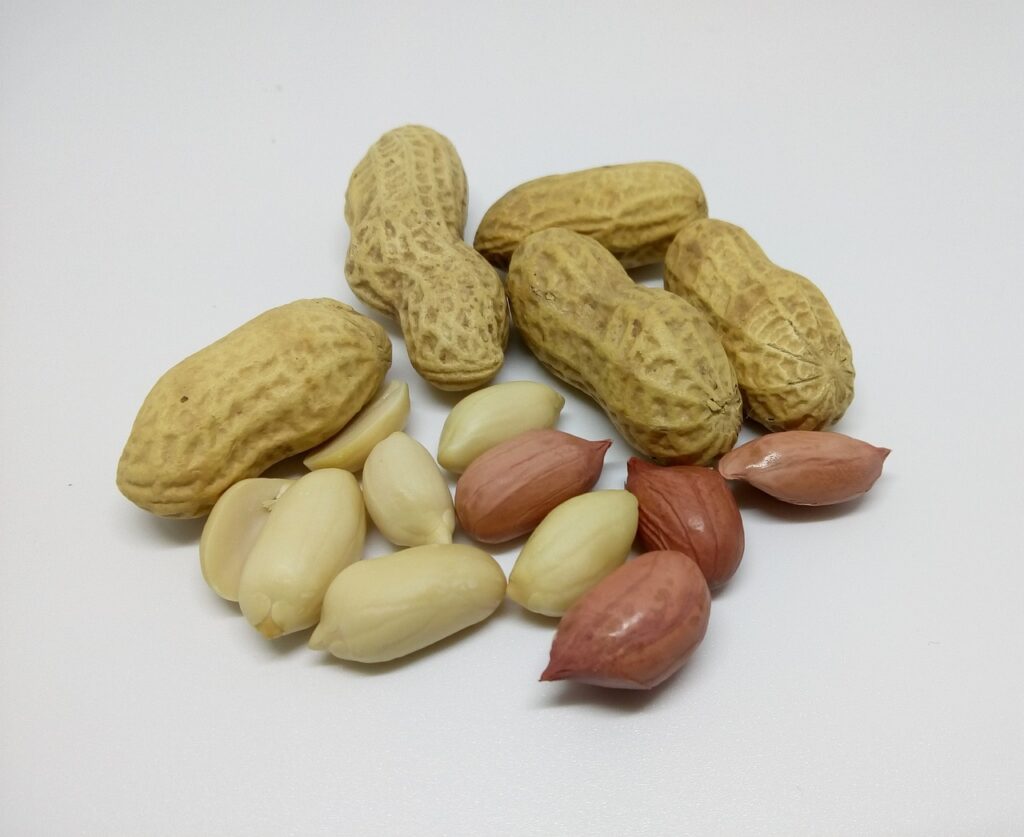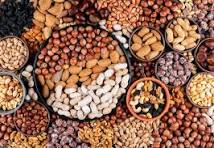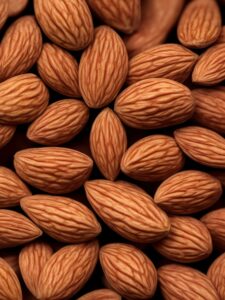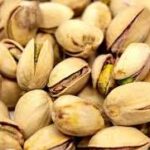Peanuts and Dry Fruits
Peanuts are not nuts, but legumes that belong to the same family as beans and lentils. They are rich in protein, fiber, healthy fats, and various vitamins and minerals. Some of the health benefits of peanuts include:

- Preventing diabetes by improving blood sugar control and insulin sensitivity1 2.
- Reducing the risk of gallstones by lowering cholesterol levels2.
- Boosting memory and brain function by providing antioxidants and vitamin E2.
- Protecting against depression by increasing the production of serotonin, a mood-enhancing hormone2.
- Promoting weight loss by increasing satiety and metabolism1 2.
Almonds, pistachios, cashews, and other tree nuts are also nutritious and beneficial for your health. They have similar effects as peanuts on blood sugar, cholesterol, and inflammation, but they may have some advantages over peanuts in other aspects. For example:

- Almonds are high in calcium, magnesium, and vitamin E, which are important for bone health, muscle function, and skin health4.

Almonds -

Pistachios s4.
- Cashews are high in iron, zinc, and copper, which are essential for blood formation, immune function, and nerve health4.

Cashews -

Dried Apricot Other tree nuts, such as walnuts,

Walnuts pecans, macadamia nuts, brazil nuts, and hazelnuts, have their own unique phytochemicals and nutrients that may offer additional benefits for your heart, brain, thyroid, and cancer prevention4 5 6.

hazelnuts
All nuts are high in calories and fat, so eating them in moderation and as part of a balanced diet is important. A handful of nuts (about 1 ounce or 28 grams) per day is enough to enjoy their health benefits. You can eat them raw, roasted, or as nut butter, but avoid salted, sugar-coated, or chocolate-covered nuts, as they add extra sodium, sugar, and calories.

Source(s)
- Peanuts 101: Nutrition Facts and Health Benefits
- 11 Impressive Health Benefits of Peanuts – Natural Food Series
- The Top 9 Nuts to Eat for Better Health
- The Health Benefits of Nuts – Cleveland Clinic Health Essentials
- Nuts and your heart: Eating nuts for heart health – Mayo Clinic
- Health Benefits of Peanuts – WebMD
- Getty Images
Excess of everything is bad, eating too many nuts can have some negative effects on your health. Some of the possible side effects are:
- Weight gain: Nuts are high in calories and fat, so eating too many of them can lead to excess calorie intake and weight gain. To avoid this, you should limit your portion size to a handful of nuts (about 1 ounce or 28 grams) per day and adjust your calorie intake from other sources accordingly1 2.
- High blood pressure: Some nuts, especially salted ones, can contain a lot of sodium, which can raise your blood pressure and increase your risk of heart disease and stroke. To prevent this, you should choose unsalted or lightly salted nuts and limit your sodium intake from other foods2 3.
- Gastrointestinal problems: Nuts are rich in fiber, which is good for your digestion, but eating too much fiber can cause gas, bloating, diarrhea, and abdominal pain. To avoid this, you should increase your fiber intake gradually and drink plenty of water to help your body adjust1 2.
- Selenium poisoning: Brazil nuts are very high in selenium, a mineral that is essential for your health, but too much of it can be toxic. Eating too many Brazil nuts can lead to selenium poisoning, which can cause symptoms such as hair loss, nail brittleness, joint pain, and fatigue. In rare cases, it can also cause kidney failure, cardiac arrest, and death. To prevent this, you should limit your intake of Brazil nuts to no more than two to four per day2 3.
As you can see, nuts are healthy and nutritious, but they should be eaten in moderation and as part of a balanced diet. If you have any medical conditions or allergies, you should consult your doctor before eating nuts or any other food. I hope this information helps you make informed choices about your nut consumption. Have a nice day! 😊
Nuts are a delicious and nutritious snack that can be enjoyed in many ways. Here are some healthy ways to eat nuts:
- Add them to your breakfast. You can sprinkle nuts on top of oatmeal, yogurt, cereal,

sprinkle nuts on top of oatmeal, yogurt, cereal or smoothies for extra crunch and flavor. Nuts can also be added to pancakes, muffins, or granola bars for a satisfying breakfast treat1 2.
- Mix them with dried fruits and seeds. You can make your own trail mix by combining nuts with dried fruits like raisins, cranberries, apricots, or dates, and seeds like sunflower, pumpkin, or chia. This is a great snack to take with you when you need some energy on the go1 2.
- Use them as a salad topping. Nuts can add texture and taste to any salad, whether it’s green, fruit, or grain-based. You can use almonds, pistachios, walnuts, cashews, pecans, or any other nuts you like. You can also make your own salad dressing with nut butter, vinegar, and spices1 3.
- Make your own nut butter. You can blend nuts in a food processor or blender until they form a smooth paste. You can use any nuts you prefer, such as peanuts, almonds, cashews, or hazelnuts. You can also add some honey, maple syrup, vanilla, or cinnamon for extra flavor. You can spread nut butter on toast, crackers, apple slices, or celery sticks1 2.https://amzn.to/3Ss7sUX

Nut Butter - Bake with nuts. Nuts can enhance the flavor and texture of baked goods, such as cookies, brownies, cakes, or pies. You can use nuts as a main ingredient, such as in banana nut bread or pecan pie, or as a topping, such as in almond cookies or walnut brownies1 4.
- Make your own nut milk. You can soak nuts in water overnight, then blend them with fresh water and strain the pulp. You can use any nuts you like, such as almonds, cashews, or macadamia nuts. You can also add some dates, vanilla, or cocoa powder for sweetness and flavor. You can use nut milk as a dairy-free alternative for coffee, tea, cereal, or smoothies1 2.
These are some of the healthy ways to eat nuts, but you can also experiment with your own recipes and combinations. Nuts are versatile and delicious, and they can provide many health benefits when eaten in moderation. Enjoy! 😊.
Source(s)
- How to eat nuts the healthy way – Harvard Health
- The Top 9 Nuts to Eat for Better Health
- Go-Nuts-Your-Diet – WebMD
- Health Benefits of Nuts – WebMD
- Effects of Eating Excess Nuts and the Right Intake
- What Happens to Your Body When You Eat Nuts Every Day – EatingWell
- Can You Overdose on Nuts? | University Hospitals
Antioxidants
Compounds that protect your cells from oxidative stress and inflammation, which may contribute to chronic diseases like cancer, diabetes, and heart disease. Nuts are a good source of antioxidants, but some nuts have higher levels than others.
According to a study by Vinson and colleagues, walnuts have the highest amount of antioxidants among the common nuts, followed by pecans and pistachios. They measured the total antioxidant capacity of nuts using two methods: oxygen radical absorbance capacity (ORAC) and ferric reducing ability of plasma (FRAP). They found that walnuts had an ORAC value of 21.9 mmol and a FRAP value of 9.6 mmol per 100 grams of nuts, significantly higher than the other nuts.
Other studies have also confirmed that walnuts are rich in antioxidants, especially in the skin or pellicle, which contains phenolic acids, flavonoids, and tannins. These antioxidants may help lower cholesterol, blood pressure, and inflammation, as well as improve cognitive function and mood.
Therefore, if you want to get the most antioxidants from nuts, you should choose walnuts and eat them with your skin. However, other nuts also have their own health benefits and unique antioxidants, so it is best to eat a variety of nuts as part of a balanced diet.
Source(s)


